Prizes
Maremetraggio Section
- Premio EstEnergy – Hera Comm Best Short Film
- Premio Studio Universal Best Italian Short Film
- Premio Premiere Film Best Undistributed Short Film
- Premio Oltre il Muro Best Italian Short Film awarded by the prisoners of the Trieste District Prison
- Premio Trieste Caffè Best Short Film awarded by the audience
- Premio AMC Best Italian Editing
Nuove Impronte Section
- Premio Crédit Agricole FriulAdria Best Feature Film
- Premio Il Piccolo Best Feature Film awarded by the audience
- Premio AGICI Best Production
- Premio SNCCI Best Feature Film awarded by the National Syndicate of Italian Film Critics
- Premio ANAC Best Screenplay
Virtual Reality Section
- Premio EstEnergy – Hera Comm Best VR Short Film
- Premio Rai Cinema Channel Best VR Short Film
Shorter Kids’n’Teens Section
- Premio Shorter Kids’n’Teens Best Short Film
The People’s Choice Award
All the short films that compete in the Maremetraggio section and the feature films from the Nuove Impronte section will have the chance to be voted by the audience. On cards that will be distributed each evening before the screenings you will be able to express your judgment, assigning to each title a score from 1 (mininum) to 5 (maximum). During the award ceremony on Saturday July 7 the best short film will be awarded with Trieste Caffè Award 2018 and the best feature film will be awarded with Il Piccolo Award 2018.
Maremetraggio Jury

Chiara Nicoletti
Chiara Nicoletti
Chiara Nicoletti was born in Naples and after graduating in International Political Science, she moved to Rome to attend a Master in PR. After getting her Master Degree, she started working first as copywriter and product placement consultant and then, in March 2007, she joined the team of Taormina Film Fest. She started as Festival Coordinator, in 2011 she became Film Programmer and then she became the co-artistic director, until 2016. After working on various film productions including the last documentaries by Corso
Salani and Il mio domani by Marina Spada, she decided to land in the film journalism world by becoming Italian correspondent and then senior editor for FRED FILM RADIO – The Festival Insider, an international multichannel and multilanguage web radio focusing on the film festivals’ world. Besides FRED, as a film critic and film journalist she currently writes for the daily newspaper Il dubbio, for the press agency Italpress and for many online magazines such as movieplayer.it, foxlife.it and leonardo.it.
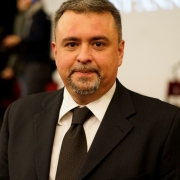
Emanuele Nespeca
Emanuele Nespeca
Emanuele Nespeca, producer and executive producer, graduated in History of Theatre and Performing Arts. In 2008 he founded the Associazione Giovani Produttori Cinematografici – AGPC and until 2013 he has been its vice president. In recent years, he has distinguished himself for his contribution to the creation of projects of high cultural value and of difficult production. In 2003 he met the independent producer Gianluca Arcopinto, and from that moment he started producing fiction and documentaries like Pietro by Daniele Gaglianone, Notizie degli scavi by Emidio Greco, Cavalli by Michele Rho. In 2011 he started his collaboration with Mario Mazzarotto and Movimento Film, producing Il futuro by Alicia Scherson, Banat by Adriano Valerio, Dopo la guerra by Annarita Zambrano. In 2013 he founded his own company, Solaria Film.

Veronica Pivetti
Veronica Pivetti
Veronica Pivetti is an actress, voice actress, TV and radio presenter, author and director. She is known by most for her role in Verdone’s Viaggi di nozze, for presenting the Sanremo Festival together with Raimondo Vianello and Eva Herzigova, and for her roles in many successful TV shows, including Commesse, Il maresciallo Rocca, Provaci ancora prof!, and La ladra. She is also a published author, having written Ho smesso di piangere (Mondadori) and Mai
all’altezza (Mondadori). Né Giulietta, né Romeo is her first film as a director.
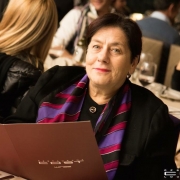
Virna Gioiellieri
Virna Gioiellieri
Virna is a law graduate, freelance journalist, a level 3 sommelier and a creative. She is currently collaborating with an online newspaper for the municipality of Imola and the region of Romagna. In 1988 she founded La Palazzina, the first Italian youth centre for information and communication complete with filming equipment, an editing studio and created specifically for the study and reading of the language of pictures applied to music, art and the production of videos and films. Since 2002 she has worked with the Hera Group, for whom she has followed the events and partnerships first for Hera Spa, until 2007, and then for Hera Comm, company of the Group. She is currently responsable for events and communications sponsorships for the Hera Comm Marketing Department, for whom she oversees the partnership with the Toscanini Foundation of Emilia Romagna with offices in Parma, the Macerata Opera Festival, Festivaletteratura Mantova, Arci Reggio Emilia, and Flowershow Perugia.
Nuove Impronte Jury
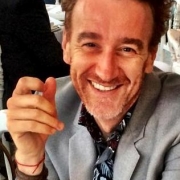
Daniele Orazi
Daniele Orazi
Born in Rome in 1971. After several experiences in the show business, he specialized in artistic management aimed at actors, accompanying the career of some important artists. In 2005 he founded Officine Artistiche. Since 2007 he is a member of the Italian Film Academy, which awards the David di Donatello. In 2011 he was one of the founding members of Consorzio Officine Artistiche. In 2012 he won the Kineo award for best agent. He periodically collaborates with academies, universities and festivals where he holds seminars and masters related to his profession. In 2016 he created the DO Consulting & Production and he began a new path dedicated to production and artistic consultancy for film events. As co-producer, he made his debut at the 73rd Venice International Film Festival with the award-winning debut work La ragazza del mondo by Marco Danieli and with Vangelo directed by Pippo Delbono, both presented in the Giornate degli Autori section.
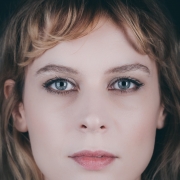
Elena Radonicich
Elena Radonicich
Elena Radonicich attended Centro Sperimentale di Cinematografia in Rome, where she graduated in 2009. Alina Marazzi chose her to play with Charlotte Rampling in her film Tutto parla di te, presented at the Rome Film Festival in 2012. In 2013 she performed in the TV serie 1992 by Giuseppe Gagliardi, which will be followed by 1993 and 1994. In 2015 she took part in the film Alaska by Claudio Cupellini with Elio Germano, and was the protagonist of Banat – Il viaggio, directed by Adriano Valerio. In 2017 she played the part of the policewoman Stella Mariani in the TV serie La porta rossa, by Carmine Elia. In 2018 she played Enrica “Puny” Rignon, the first wife of Fabrizio De André, in the film and television event Fabrizio De André – Principe libero. Elena has just finished shooting Il commissario Motalbano, where she is one of the female protagonists, and is currently working on the second season of La porta rossa.

Marco Alessi
Marco Alessi
Marco Alessi started his career as a screenwriter for both cinema and TV. In 2010 he set up Dugong, a Rome based production company committed to the development of cinema beyond genres and boundaries. Among his credits as a producer are Stefano Savona, Tahrir, Liberation Square (premiered at Locarno, winner of David di Donatello and Nastro Argento, sold to more than 20 countries); In attesa dell’avvento (winner of Orizzonti Award in Venice),
Rä di Martino Ancient Copies of Recent Landscape (Rotterdam FF, Tate Modern London), The Challenge by Yuri Ancarani (winner Special Jury Prize at Locarno 2016). Controfigura by Rä di Martino was premiered in Venice Film Festival 2017. Premiered at the Director’s Fortnight in Cannes La strada dei Samouni by Stefano Savona won L’Oeil d’or 2018 for best documentary.
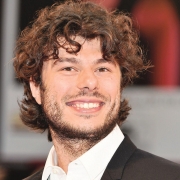
Sydney Sibilia
Sydney Sibilia
Sydney Sibilia, born in 1981, began directing short films while in Salerno, the city where he was born. In 2007 he moved to Rome; there, he directed the short film Oggi gira così, which won many awards. In February 2014 he released his first feature, Smetto quando voglio. The film, produced by Domenico Procacci’s Fandango, by Matteo Rovere’s Ascent Film and by Rai Cinema, had a surprising success. Presented at numerous international festivals, including the London Film Festival and the Reykjavik International Film Festival, the film received 12 nominations for the David di Donatello and won numerous national and international awards, including the Nastro d’Argento for Best Producer and the Ciak d’Oro to Sydney Sibilia as Revelation of the Year. In February 2017, Smetto quando voglio masterclass has been released. The film, produced by Greenland, Fandango and Rai Cinema, is the second chapter of the trilogy that ended in November 2017 with the release of Smetto quando voglio ad honorem.
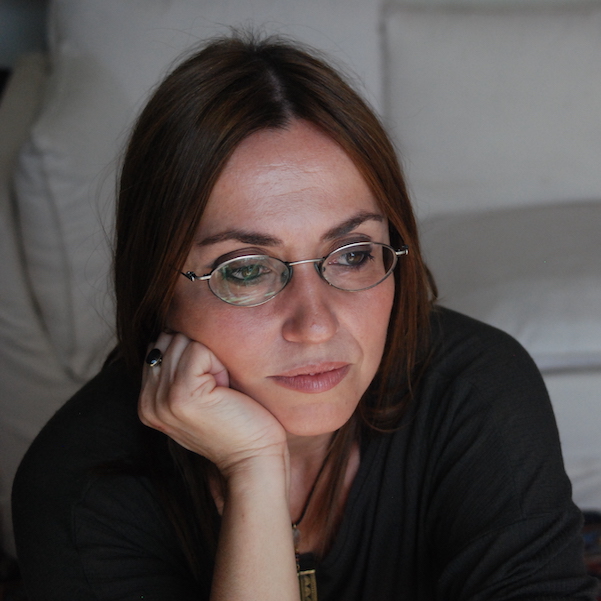
Giovanna Taviani
Giovanna Taviani
Born in Rome in 1969, she debuted at the Turin Film Festival in 2004 with I nostri 30 anni: generazioni a confronto, a journey through 4 generations of directors, from fathers to sons. In 2005 she presented at the Rome Film Festival Ritorni, winner of the Special Jury mention at the Libero Bizzarri Foundation Award. In 2011 she presented Fughe e approdi. Ritorno alle Eolie tra cinema e realtà at the Venice Film Festival, which won the Critics Award at the Nastri d’Argento, the Special Jury Prize at the Festival d’Annecy, the Best Documentary Award at the Madrid Film Festival and was nominated for Best Documentary at the Globi d’Oro. In 2012 she continues to dedicate her work to the southern question as director and screenwriter of the documentary Ragazzi all’opera and of Pane e pregiudizio, 65 years of the Anfe for migrants. In 2007 she founded the SalinaDocFest – Festival internazionale del documentario narrativo. She is director of the video series for schools Dal testo allo schermo. Al confine tra letteratura e cinema. Since 2011 she is an artist professor at the Italian School of the College of Middlebury in Vermont.
ShorTS Virtual Reality Jury
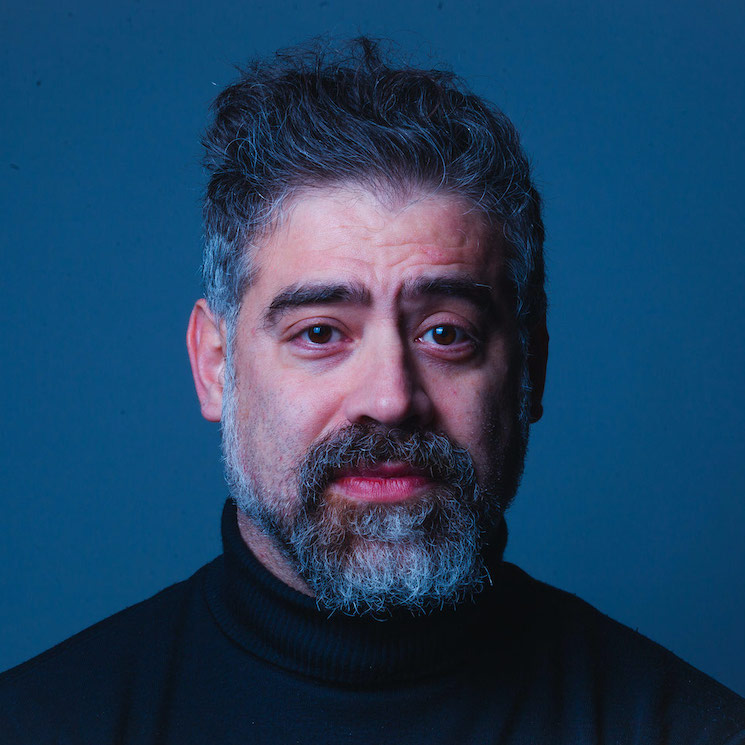
Emilio Cozzi
Emilio Cozzi
Journalist and author, Emilio Cozzi was born and raised in Italy. After his beginnings as a film critic (a subject to which, in 2005, he dedicated the book Ti racconto un film, edited by Raffaello Cortina Editore), from 2007 until 2016 he was the deputy director of Zero, the biggest free press magazine for cultural entertainment in Italy. He writes regularly for La Gazzetta dello Sport, Wired Italia, Forbes Italia, Il Corriere della Sera and Il Sole 24 Ore, publications for which he covers digital culture, video game criticism, sport and aerospace publishing. He is a columnist for the Red Bull Games and the editorial co director of Game Culture, an academic series edited by Unicopli. He is also a content designer for Simmetrico Network. Named Best Italian Journalist at the 2017 Italian Esports Awards, he hosted a TEDx talk in March 2017 entitled Giocare davvero.
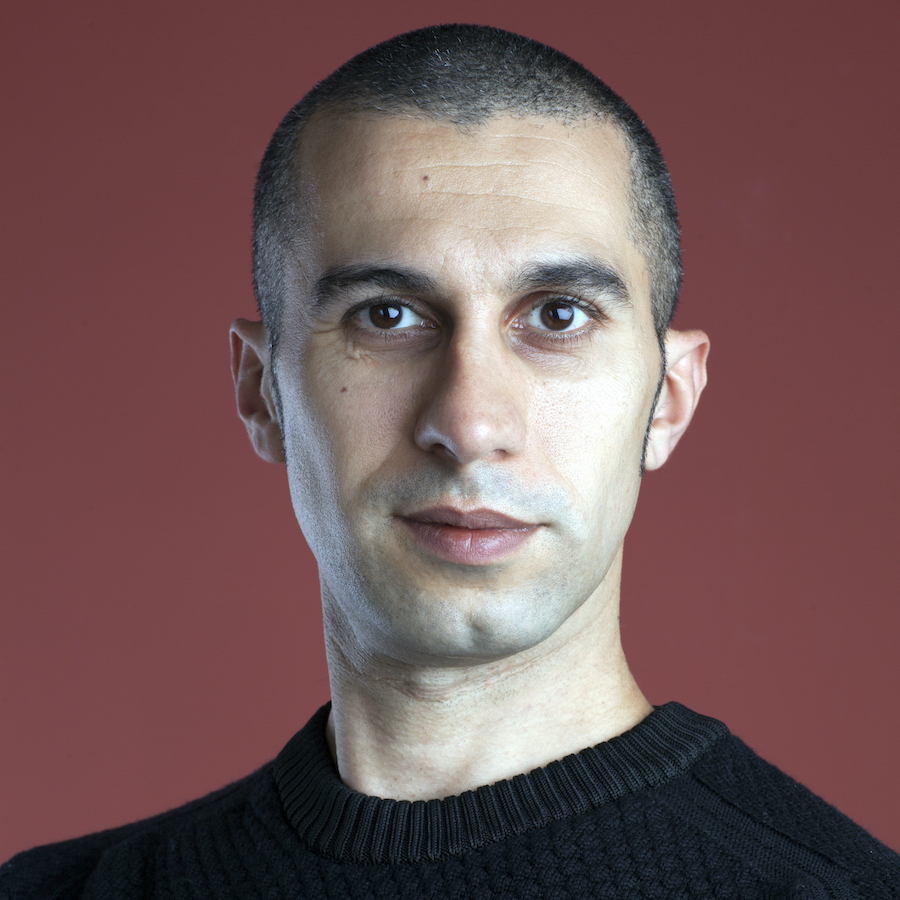
Omar Rashid
Omar Rashid
An art director, producer and designer, Omar finished his studies at Florence Polimoda in 2002. After gaining experience as a fashion designer working between Paris and New York he created his street-wear collection, which he promoted in unconventional ways. His passion for new languages and their applications has become the core of his profession. In 2013 he made Gold AR, a Virtual Reality app that won the Auggie Award for Best VR Marketing Campaign. In 2016, in collaboration with Elio Germano, he made NoBorders VR, the first Italian documentary to use Virtual Reality, and winner of the MiBACT (Ministry for Cultural Heritage and Activities and Tourism) Migrarti prize at the Venice Film Festival. He is currently working on a new VR project with his
communication agency and is teaching viral marketing and web communication at the European Institute of Design in Florence.
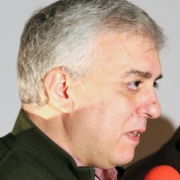
Txema Munoz
Txema Munoz
Born in Zeanuri (Basque Country, Spain) in 1961. He has a degree in Psychology but he never worked as a Psychologist. From 1990 he works within the audiovisual field, where he has acted as a programmer, organizing some film festival, as a publisher, etc. In February of 2002 he started working exclusively for Kimuak, the Basque Government’s public program for the promotion, diffusion and distribution of Basque short films worldwide. He has been a jury member at several festivals in Spain, Italy, France, Chile and Colombia, and he has also been part of the selection committees of the public short film programs of Catalonia, Andalusia, Canary Islands and Cantabria. He has published a number of articles related to different audiovisual matters in some specialized magazines and books. He loves Italian food and grappa.
SNCCI Jury
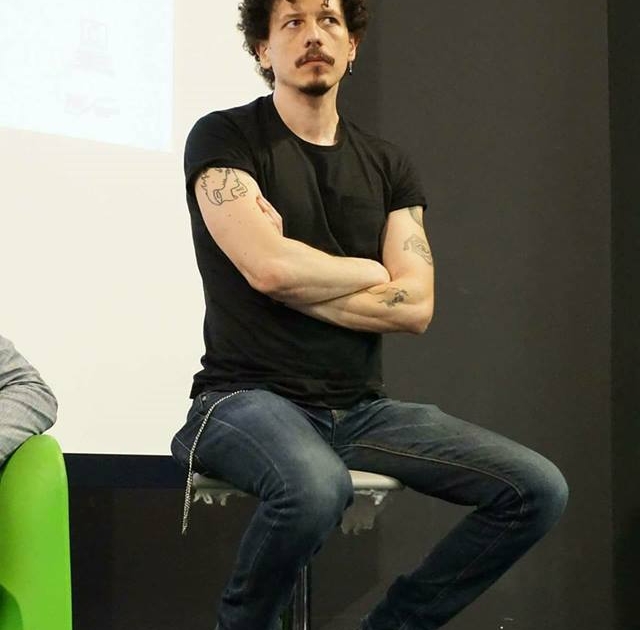
Luigi Abiusi
Luigi Abiusi
Altamura 1974. Film, literary and music critic, writer, poet. He is a programmer for the International Critics’ Week at the Venice International Film Festival. He is also the director of the film culture magazine Uzak.it and regularly writes in several film journals, such as Critica letteraria, Filmcritica, Duels.it, Filmparlato.com, Alias. He collaborates with the Cinema Encyclopaedia Treccani, for which he has produced the entries for, among others, Angelopoulos, Weerasethakul, Alber Serra, Tsukamoto, etc. He teaches Italian contemporary literature at the Istituto Universitario per Mediatori Linguistici Carlo Bo (Bari). Besides the essays published in specialized magazines and collective works, his recent publications include the volumes Per gli occhi magnetici. Campana, Pasolini, Erice, Tarantino (2011) and Tempo di Campana. Divenire della poesia tra Nietzsche e Deleuze (2008). In addition, he was the curator of the volume Il film in cui nuoto è una febbre. Registi fuori dagli scheRmi (2012) and is currently the director of the namesake international Film Festival for the Apulian Film Commission.
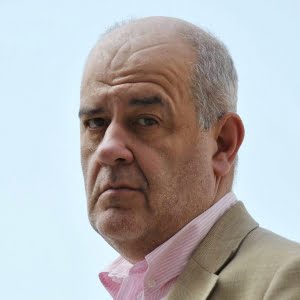
Adriano De Grandis
Adriano De Grandis
Venice, 1955. As a professional journalist, Adriano first worked as an editor on the Sports Pages, before moving on to the Performance Pages. He has followed the world’s biggest sporting events and most important film festivals. He has collaborated on Segnocinema for 25 years, and he worked as a selector for Venice International Film Critics’ Week from 2005 to 2008. He is a great food lover, and he writes for some of the best known gastronomic guides. He is also a singer, and has published a CD his previously unknown songs called Anche I pesci parlano d’amore.
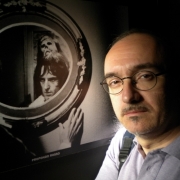
Massimo Causo
Massimo Causo
Taranto, Italy, 1965. Film critic and Festival programmer. He has been in charge as curator of the Onde section of the Turin Film Festival since 2007. He is editor of the movie magazine Il ragazzo selvaggio, as well as regular contributor of the magazine Filmcritica, Cineforum and the web magazines Sentieri Selvaggi, Duels and Uzak. As festival programmer, he was part of the selection committees of Infinity Festival (Alba, Italy) and the Film Critics’ Week at the Venice Film Festival. He is consultant of the European Film Festival of Lecce (Italy). He is the author of books on Kathryn Bigelow, Yılmaz Güney, Amir Naderi (coauthor G. Paganelli), Andrej Konchalovskij, Maurizio Nichetti, Francesco De Robertis, Michele Placido, Ugo Tognazzi, Lucia Bosè, Margherita Buy, Valeria Golino and, with D. Di Giorgno, on the Halloween Horror Saga.

